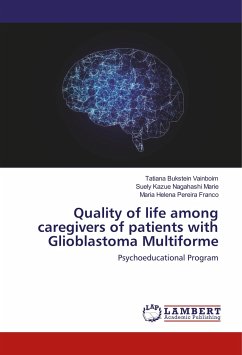
Psychosocial Approach to Cancer Care
Second Edition
Versandkostenfrei!
Versandfertig in 6-10 Tagen
40,99 €
inkl. MwSt.

PAYBACK Punkte
20 °P sammeln!
Palliative care focuses on relief from physical symptoms as well as from emotional, social, and spiritual distress. The book promotes the importance of integrating psychosocial theories into standard palliative care to improve the quality of life of patients and carers. Current evidence suggests that palliative care improves patients' symptoms and quality of life, augments family satisfaction with caregiving, reduces excessive hospital admissions and costs and provides greater alignment of medical care with the patient's needs and goals. Recent efforts in oncology have sought to extend palliat...
Palliative care focuses on relief from physical symptoms as well as from emotional, social, and spiritual distress. The book promotes the importance of integrating psychosocial theories into standard palliative care to improve the quality of life of patients and carers. Current evidence suggests that palliative care improves patients' symptoms and quality of life, augments family satisfaction with caregiving, reduces excessive hospital admissions and costs and provides greater alignment of medical care with the patient's needs and goals. Recent efforts in oncology have sought to extend palliative care to a broader range of cancer care, including the promotion of early referral to palliative care. The integration of psychosocial spiritual approaches provides a role for hope in the process of providing palliative care. The result is an integrative model that adds three critical components to the standard model of palliative care: (1) the juxtaposition of control and uncertainty; (2) the dynamics of matching need and provision of support; and (3) the qualities of hope in the context of palliative care.














